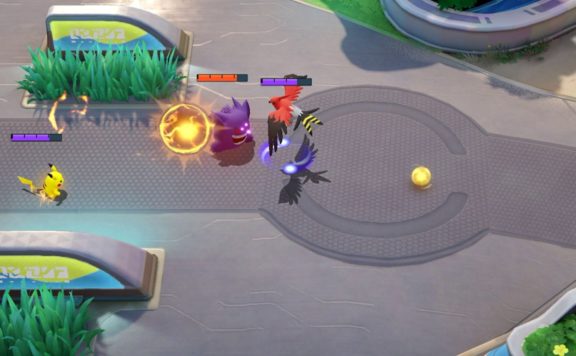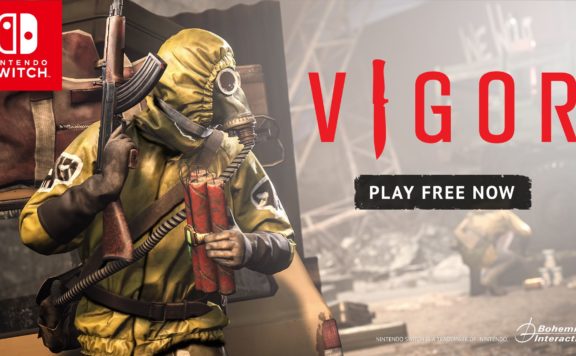So, today you’ll notice we have a threeway bout, based largely on how games get you to open your wallet and to pry cash from your hands. Feeling like you’re being bilked is always a hot topic that makes people more than a little steamy, so without further ado let’s throw some logs on that fire and then see how we can snuff it without any of us getting burned in this week’s WTFBBQ.
First, let’s address the source of the problem; you feeling cheated. Now whether this is through buyer’s remorse or something actually being defective, it doesn’t really matter. Yeah, I hear you getting ready to be ticked-but let’s be honest here, folks. You’re buying a game, you know there’s a chance it’ll be buggy beyond playable. That’s just how it works now. I’m not going to get into whys and hows, because that’s another issue and a lot more than I have room to talk about here, but the fact remains, you know what you’re getting into when you haul out your cards, cash or other.

Let’s start here with buyer’s remorse. It’s a common phenomenon applied in a lot of places it really shouldn’t, but in this case, it’s spot on. You go, you buy a 20$ mount from the shop and then a week later your bills come due and you think “why the hell did I spend twenty dollars on a bunch of pixels?” Now this is becoming less common, but still happens, mostly with us old grognards from the era of subscription only. Younger or newer players are getting more used to this, and are much less prone to it. Unlike things like clothes and electronics, you can’t often return them.

Aaaand there’s the problem. Lack of refunds. You make a stupid purchase, now you’re stuck with it. Occasionally you can get money ort something back for it if you hop on it quick, but if, after a few days you’re regretting it, or realize that maybe groceries would be a better buy, well…you’re done. Let’s face it, refund policies for e goods sucks. I’m not going to debate that at all. I can understand having a limit of one day for games that are relatively short, but for things that are in microtransactions, long games that take days to finish, and stuff like that, we definitely need to encourage better policies, so rage away to your heart’s content.

No, I don’t think you should be able to return a twenty-hour game after two days, basically having given you enough time to play it all the way through, but if you play around with it for a small portion of the game and it just isn’t what you want, yes, you should absolutely be getting a refund. Yeah, I get that refunds can really screw with economics in studios, but if they had to deal with potential refunds it might motivate lower end studios to improve. Not only would that be better for us, but for them as well. Innovation and progress are stilted by the current method of returns and refunds since the studios can just count their money once it comes in, and if they have a great marketing campaign, can make bank on a product that’s just crap. People get hella ticked when they feel like they’ve been exploited like that, and that’s one major way studios are blacklisted by players. If players could get a refund you’d see more temporary movements, but less long term ones. And if you don’t understand why long term customer retention matters, you have no business running a business.

Now, that out of the way, let’s look at the more shallow debate about actual payment options.
Now people from my gaming generation (as opposed to actual generations-I’m talking about when you started playing, not your age), we’re used to subs. They’re a monthly cost we can fire and forget. We like it, it’s familiar, and it guarantees some content and some actual play over time. To be honest, so do the other methods, but for some reason, my fellow olds seem to find the idea of being able to buy things in game with great derision, and ignore the fact that in F2P games, they’re not paying for the game. Instead, the idea of paying a sub seems so ingrained, the response is as if they’re asked to pay extra-which simply isn’t true.

Buy to Play or B2P is a much rarer animal, and everyone seems to like it, except for the rare few who are either super penny pinchers or just flat out too poor to afford an upfront purchase price. For the poor folks, you have my utmost sympathies, but, devs have to get paid. As it is some are sleeping in cars or four to a room just to provide you with games. They should be making a living wage, and while I agree that you should be able to afford something for recreation, if for your mental health if nothing else, that’s the job of your governments, not the industry and the people working to provide a product in hopes they can pay their rent. Studios generally get less money from this kind of arrangement, and it’s not surprising it’s still largely the province of single-player or small party coop. You can’t put out more content or patches if you have no more money coming in. People have to get paid.

Now F2P, Free to play-I only really have two issues with free to play, one: it isn’t. Free to Play is a branding trick making you think you’re getting something for free, and sure, for the people who never pay a cent, you are, to a degree. Your participation counts and can drive investors to studios by having you there. If there are ads, well then, you’re kind of paying, just with your eyes instead of your wallet. Ad companies pay for exposure to clients, because the more familiar we are with a company or product, the more likely we are to buy from them. Ad covered games can make a decent amount of cash depending on their marketing folks and people who have an idea on how to cross-brand.
My second problem is this: Free to Play games often pull scams on players. Oh, not anything they could be penalized for, but they can really skate the limits of the legal definition of false advertising. They are known to make it sound as if you can play your way up, and then stick hurdles in the way, or advertise benefits at prices that you later find out aren’t really much of a benefit, if at all. Advertising and marketing rules here and the law of the land is to make something so appealing people feel they have to buy in. I don’t like that as an ethical matter, but I get it.

Regardless of how you pay for your play, the fact remains, studios do need to get paid. Animators, writers, coders, all the way down to mailroom and receptionists, they need to be paid for their efforts. Without pay, there is no product. So what then, is a gamer to do when faced with the different methods varied studios use to pry money out of your hands? Make a plan. Make a budget. Decide what you can and can’t afford to spend, and make it tight. You’ll skip it, you’ll overspend, but that’s why you make it that way because you will cheat. It’s like a diet, you need to have a certain amount you can cheat, but by having a lesser amount allotted to yourself, you’ll try to keep your cash in mind. Failing that-read up on the companies. Find out who has a monetary system you can deal with and go with that. As I stated in my last article, keep an eye on them as well, because that great studio you love could just as easily slide into the abyss of gimme in a matter of weeks and you can end up getting taken if you’re not careful.

It’s sad to say, but everyone wants more money these days, and when it comes down to it, why should game studios be any different? I mean, hell, if you could sell rocks for 10$ a pop by picking them up from the ground for free, you probably would. So, let’s be honest folks, we all wanna make bank, and in the end, it’s up to you to make sure that someone isn’t doing it out of your pocket.







